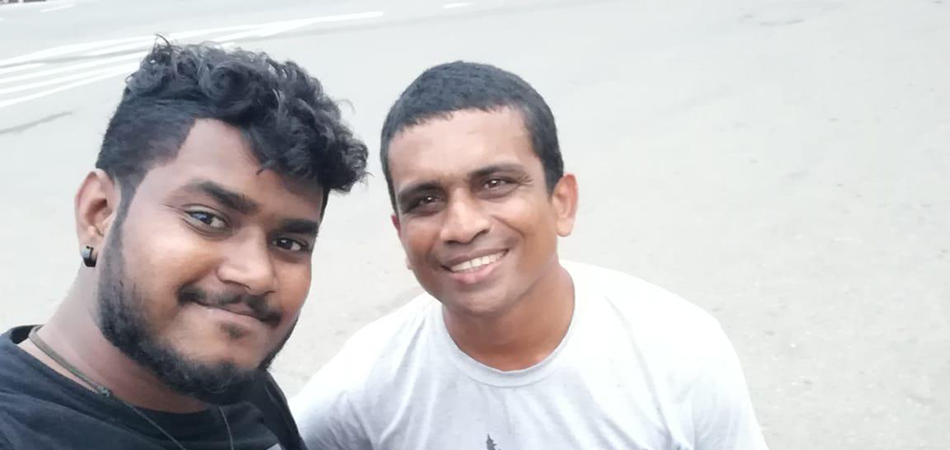Beyond the Barriers of Language
31 August 2020 | SDJF_Admin

A young MediaCorps Fellow learns the redundancy of linguistic barriers to foster a lasting friendship.
I was born and raised in a predominantly Sinhalese Buddhist community in Galle in the Southern Province of Sri Lanka. In the MediaCorps Fellowship, I was partnered with a fellow Tamil journalist from Batticaloa who was much younger than me. During the five days training and few other moments we met in the field, we could identify the similarities and differences in our perspectives and tastes. I’m currently working as a facilitator for underprivileged and marginalized groups of children. Thanks to working in different regions of the country with both children and adults belonging to diverse ethno-linguistic and gender settings I believe I have the ability to perceive and accept diversity with an open mind. As a person who has promoted peace and reconciliation from an early age, I particularly appreciate the culture and life style of the Tamil community. My wife who is a teacher in Tamil language is also fluent in Tamil as a second language.
My own experience with aging parents and relatives and my experience with children with disabilities deepened my emotions and sensitivity to agonies of life. It was not difficult for me to identify stereotypes, attitudes that discriminate and exclude people with special needs and their root causes because I believed that I had the right understanding and mindset. My understanding of their specialities, disabilities and barriers, prepared me mentally and physically and it was easier to get close to them. My amicable communication style was an added asset to further understand their preferences. My inherent interest to listen to the voices of diverse communities and to eliminate their fears helped me to better connect with the Tamil community of my MediaCorps partner, Shakthikumar Thanushkar.
Although I was prejudiced in the past to frame communities based on their beliefs and cultural values with time, I realized these prejudices as barriers to my ability to foster lasting relationships with people from diverse communities. I also realized that if we are to peacefully coexist, we should be emotionally ready to observe, study and accept the differences among our perceptions. As an open-minded person, I refuse to be confined to the assigned practices and beliefs of my religion but I have no objection to the religious and cultural practices of people hailing from other communities which has immensely helped me to sustain amiable bonds with others. Also, thanks to my gender and ethnic sensitivity which I also bring into the stories I produce about marginalized communities, the barriers I might have been confronted with when interacting with another community has greatly minimized. The only barrier I have now is my inability to speak Tamil. However, Thanushkar’s fluency in Tamil, English and Sinhala helped us to overcome this challenge and the time we spent together left us unforgettable memories which were not marred by any linguistic barrier. Even the disparity in our age became insignificant and we could effortlessly understand each other’s perceptions and life experiences. It is often believed that language plays a significant role in understanding each other and inability to speak each other’s language would only lead to misconceptions. However, my experience with Thanushkar as well as with the children of special needs that I work with who are verbally impaired proved otherwise. We all have the same basic needs and interests. I strongly believe that when this simple truth is understood, every other linguistic, religious and ethnic differences become redundant.
-Written by Chandana Wasantha from MediaCorps Fellowship 2019/20